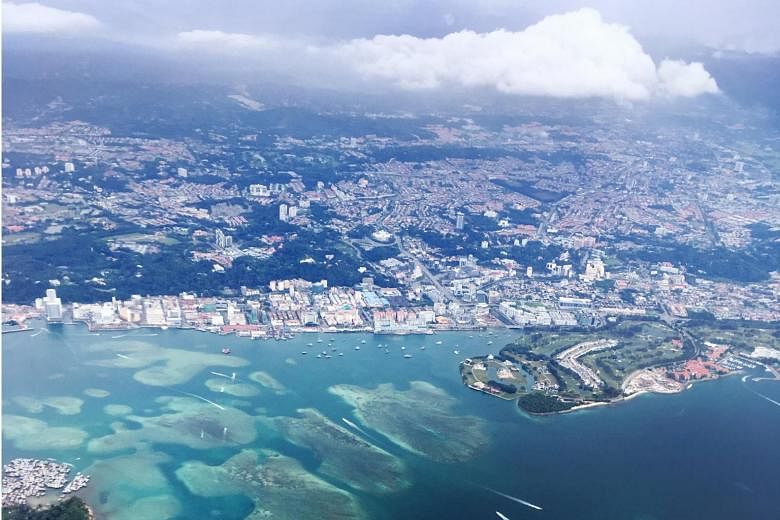MANILA - A diplomatic row between Kuala Lumpur and Manila is flaring up after the Philippines' foreign minister fired a tweet this week to again assert Philippine ownership of the Malaysian state of Sabah on Borneo island.
Foreign Secretary Teodoro Locsin said in a Twitter post on Monday (July 27) that "Sabah is not in Malaysia, if you want to have anything to do with the Philippines".
His tweet was a reaction to a US Embassy item about a donation of hygiene kits to over 300 Filipinos repatriated from Sabah to the southern Philippine island of Mindanao.
The embassy described the area straddling both nations as part of Malaysia.
On Wednesday (July 29), Malaysia's Foreign Minister Hishammuddin Hussein replied on his official Twitter account that Mr Locsin's statement was "irresponsible".
"Sabah is, and will always be, part of Malaysia," he said.
Mr Hishammudin also said he would summon the Philippines' ambassador to Kuala Lumpur Charles Jose to explain.
Mr Locsin refused to back down on Thursday (July 30).
In another tweet, he insisted his statement about Sabah was "historically factual".
"No country can tell another country what it can and cannot say about what the latter regards as rightfully his own," he said.
Mr Locsin added, alluding to an international ruling that recognised the Philippines' claims to parts of the South China Sea: "I don't insist China say only what we want to hear about the arbitral award. It is free to say what it wants, while we say and do what needs doing. That holds for Sabah."
He disclosed that as a response, he would summon Malaysia's ambassador to Manila, Mr Norman Muhammad, to explain Mr Hishammudin's reaction to his tweet.
Upon his election in 2016, President Rodrigo Duterte said he would press the Philippines' contentious claim to Sabah.
The dispute goes back to 1878, when the Sultanate of Sulu signed a contract, known as a pajak, that allowed the British North Borneo Company administration to occupy Sabah in perpetuity as long as it paid a regular sum of money.
Sulu is a group of islands in southern Philippines.
The Sultan of Brunei gave Sabah to the Sultan of Sulu in 1658, either as a dowry or because troops from Sulu helped him quell a rebellion.
The British colonial government succeeded the British North Borneo Company. In 1946, Sabah became a Crown Colony. In 1963, it was folded with Malaya, Sarawak and Singapore into the Federation of Malaysia.
While the British and Malaysia interpreted pajak to mean sale, the Sulu Sultanate has always maintained it means lease.
Even today, Malaysia pays about RM5,000 (S$1,620) a year to the Sultan's heirs.
Successive Philippine presidents have pressed the Sulu Sultanate's case, the most audacious being an attempt by the late dictator Ferdinand Marcos to train and equip a secret Muslim militia to take Sabah by force in 1967.
When the plot, known as Operation Merdeka, was uncovered, some 200 of the fighters who were being trained were allegedly killed by their army handlers to cover up the evidence.
The Jabidah massacre, as it came to be called, became one of the main triggers for rising Muslim discontent and the emergence of Muslim rebel groups that are still around in the region today.
The 35th Sultan of Sulu and North Borneo, Phugdalun Kiram II, has been pursuing his family's claim to Sabah under Mr Duterte.
Mr Kiram took the helm following the death of his brother Esmail Kiram II.
In 2013, Mr Esmail Kiram II encouraged a last-ditch, violent effort to regain Sabah.
A militia of over 200 men landed near Lahad Datu on Sabah's east coast and began a siege of the neighbouring area.
The attack left more than 60 people dead, set off the most serious security crisis in Malaysia in more than a decade, and strained the country's relationship with the Philippines.


